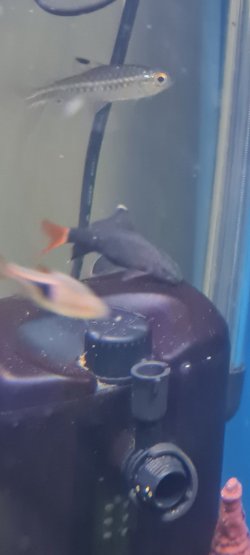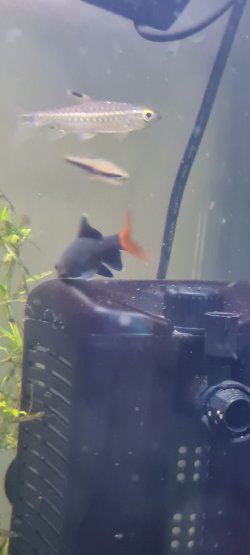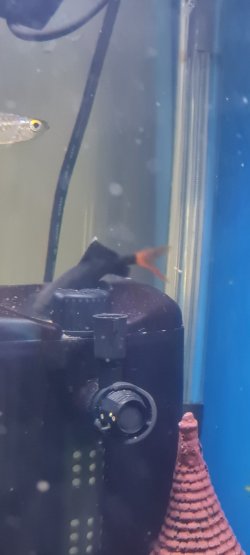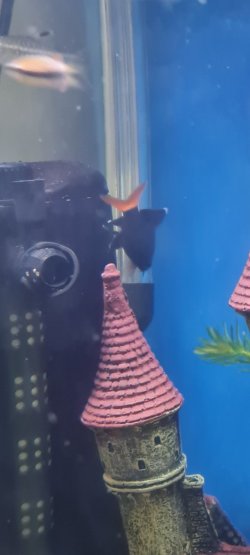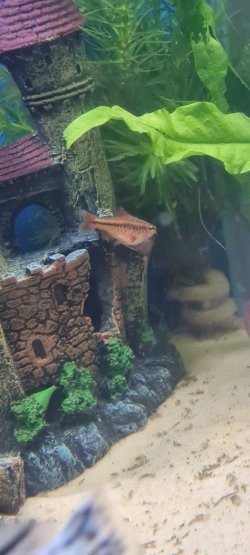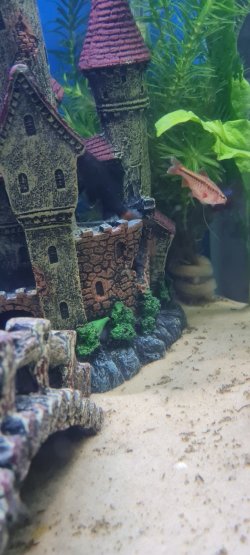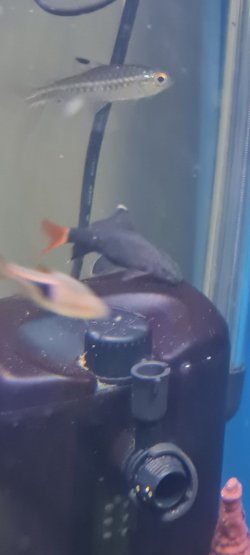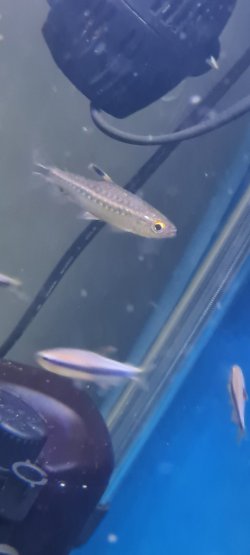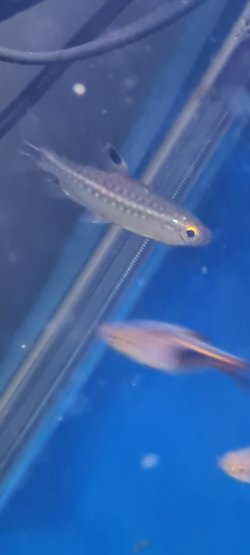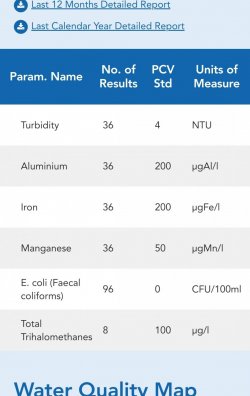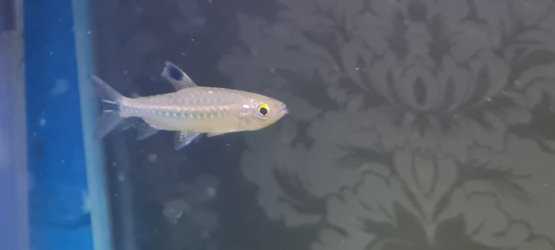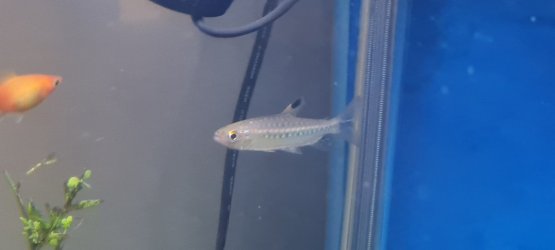I agree. The photos were not very clear, I could not see the adipose fin, but this is resolved now.
The RTS is normal, not an issue. The cherry barb I'm not sure which, but given the RTS nipping at night is a real possibility. Even if it is fin rot, this can occur from stress and just being in the tank with "aggressive territorial" fish can cause it. As can inappropriate water parameters or ammonia/nitrite/nitrate issues [just mentioning the many "causes," not suggesting this or that].
All livebearers will be healthier in moderately hard or harder water, depending upon species and GH/pH numbers, this is a generality. Mollies really must have the GH close to the 250 ppm or higher level as
@Essjay noted, platies can manage around 180 ppm (or higher not a problem).
Soft water fish generally will be healthier in much softer water. We don't have the GH number, but it may be fine for them now. Making it harder for the livebearers can cause serious issues for soft water fish, again depending upon species and the actual GH and pH. The GH directly impacts the internal functioning of the fish's physiology.

